Coral Reefs Are Dying Out Due to Coral Bleaching — Here's What That Means
Published Dec. 31 2020, 5:00 p.m. ET
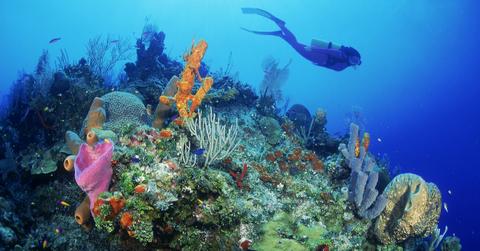
As climate change continues threaten the planet, coral reefs — which cover less than 0.1 percent of the ocean’s surface and provide shelter to 25 percent of marine life – have been dying at shocking rates over the past few years. In 2016, the Great Barrier Reef in Australia suffered its worst-to-date die-off due to significant coral bleaching.
Almost 67 percent of the coral was killed in two years, and scientists currently estimate that if coral bleaching continues at this rate, it could be eradicated entirely by 2015. Coral reefs are vital to the ocean's well-being, as they're integral to maintaining healthy levels of biodiversity and keeping much of the ocean’s ecosystem intact. Keep reading to find out more about coral bleaching.
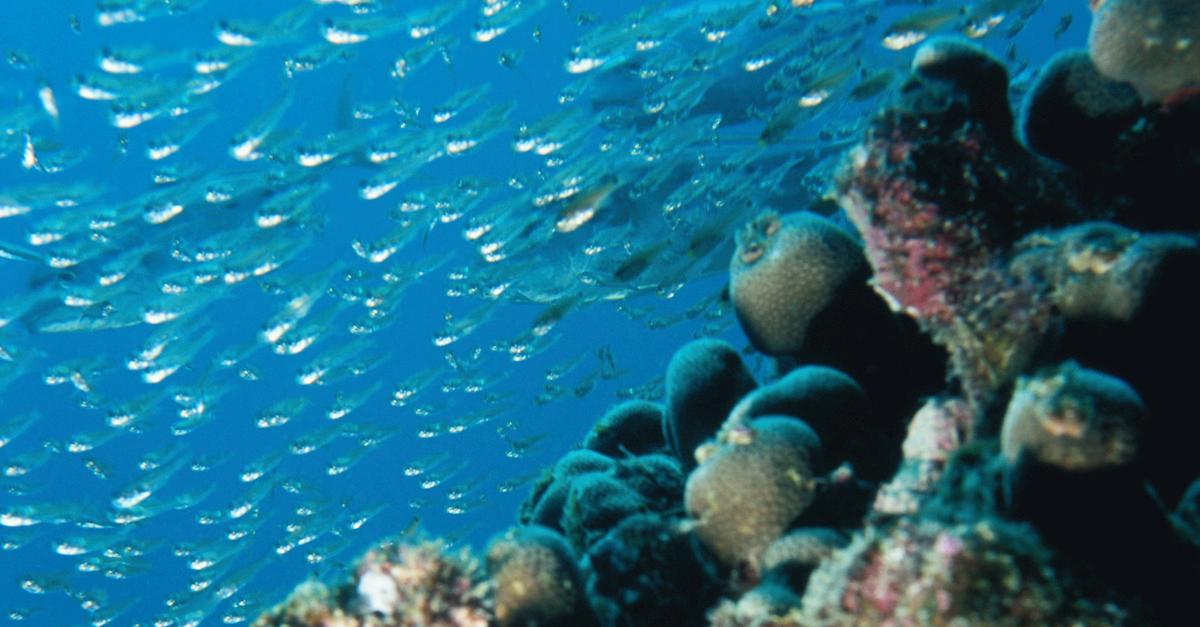
What is coral bleaching?
Coral bleaching poses a fatal threat to our ocean’s coral reefs. It's defined by the World Wildlife Foundations as the process of corals “los[ing] their vibrant colors and turn[ing] white.” Coral bleaching happens when the ocean’s temperatures and levels of CO2 rise. When the temperature of the water increases too quickly or gets too hot, it brings significant stress to the coral.
Coral bleaching is effectively brought on by climate change. As global warming is an effect of climate change, water warming is, too. When the planet’s average global temperature warms, the ocean’s average temperature warms, too. This poses a big issue for wildlife, particularly coral reefs, that are not accustomed or equipped to adapt to such changes in their ecosystem.
The warmth of the water causes the reef to bleach out, turning white and losing its signature vibrancy and hue.
“We’ve seen three bleaching events (in the reef) and each time, it can be explained by where the warm water was,” ARC Center of Excellent for Coral Reef Studies Director Terry Hughes told CNN of the Great Reef Barrier bleaching.
Other factors can also cause coral bleaching, though climate change is the leading one. According to WWF, low tides, pollution, and too much sun exposure can also result in coral bleaching.
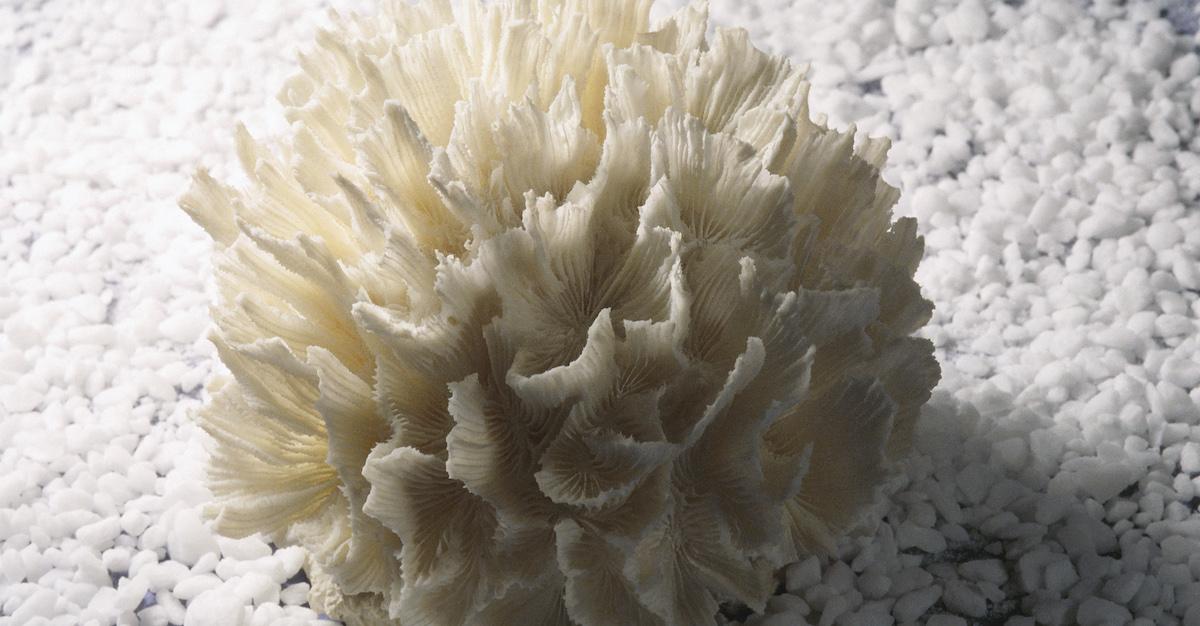
Why is coral bleaching harmful?
Coral houses more than 25 percent of the ocean’s marine life, making it an integral part of our ocean’s ecosystem. They provide safe spaces for aquatic life to live and thrive and be safe. Without them, where do the fish, sea turtles, crabs, shrimp, jellyfish, and starfish go? Even seabirds, who eat many of the marine life that thrive in coral reefs, are negatively affected.
Coral gets its color from a type of microscopic algae called zooxanthellae, but warmer waters put stress on the coral and as a result, it expels the algae to survive. In order for the zooxanthellae to come back to the coral, the temperature would have to get colder, and without the zooxanthellae, the coral dies. If a coral reef dies, it is unlikely that it will recover.
The more coral reefs that bleach and die, the less reefs there are to reproduce and multiply. Therefore, it's vital that we — as a society — find a way to curb ocean pollution and lower our emissions as a whole, to prevent the ocean's temperatures from rising.
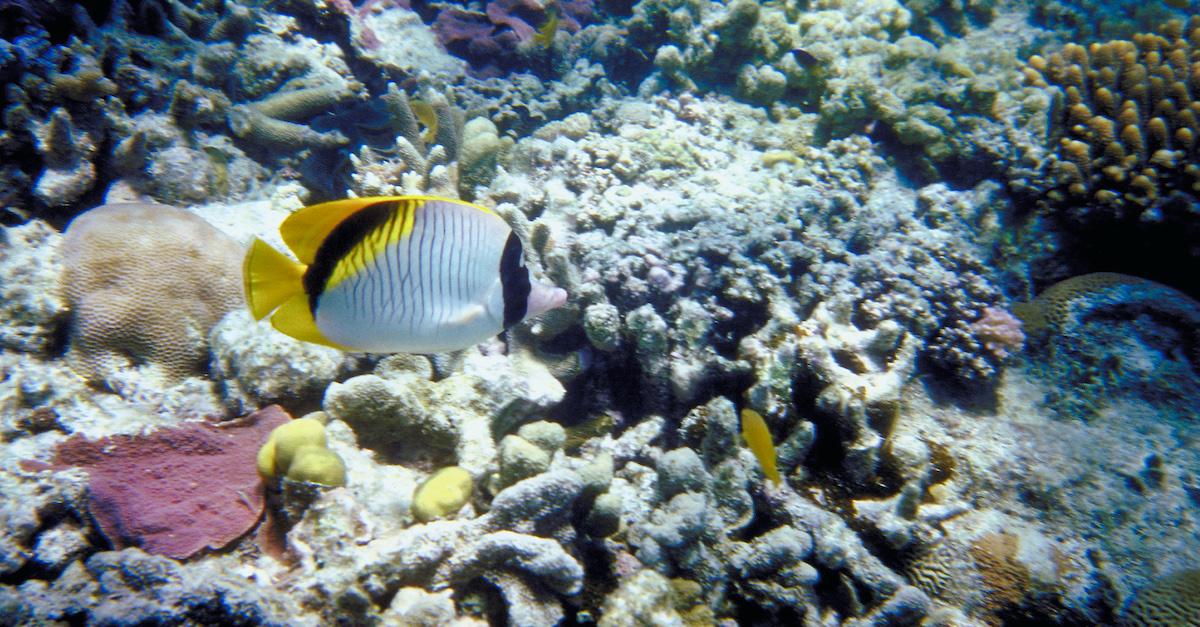
Are coral reefs considered endangered?
Coral reefs are compromised by many factors. These include climate change, natural disasters, the impacts of overfishing, non-sustainable fishing techniques, coastal developments, and pollution. World Resources Institute reports 75 percent of the world’s coral reefs are “at risk from local and global stresses.” As a result, all coral reef ecosystems could be gone by 2050.
Despite this looming threat, coral reefs aren't formally recognized as endangered under the Endangered Species Act. In total, 22 coral species are considered threatened, while three are listed as endangered. The three endangered coral species include Cantharellus noumeae, which is naturally found in the South Pacific – Siderastrea glynni – native to Panama in Uraba Island, Panama Bay, and Tubastraea floreana – found in the Galápagos Islands.
The National Marine Fisheries Service introduced a recovery plan in 2015 for both elkhorn and staghorn corals, which are listed as threatened under the Endangered Species Act. The recovery plan implemented increased monitoring of disease and bleaching events, reducing temperature stress, research of land-based growing and wild restocking of both species, and testing approaches to strains of corals that exemplify disease or biotoxin resistant, thermal tolerance, and pH tolerance.
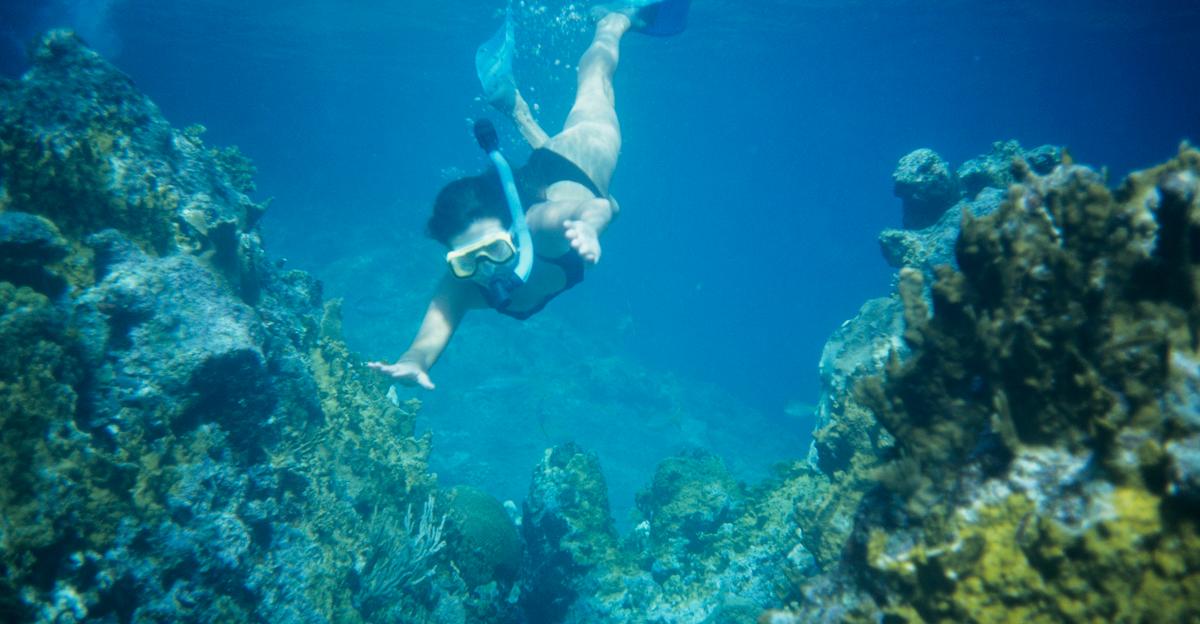
Why are coral reefs important to biodiversity?
The more biodiversity the planet has, the healthier it is. As important ecosystems break down, biodiversity is compromised, and ultimately breaks down, too. This can result in the extinction or overpopulation of different species, which threaten the planet’s healthy levels of biodiversity.
Biodiversity brings us healthy ecosystems (and vice versa), which supply natural resources, soil creation, breakdown of pollutants, purification of the water and air, and social, cultural, and recreational activities. Since coral reefs are the rainforests of our oceans, they are plentiful in biodiversity.
Should the coral reef ecosystem die off, it poses a threat to all of the diverse species that rely on the coral reef. It could result in many species becoming extinct.